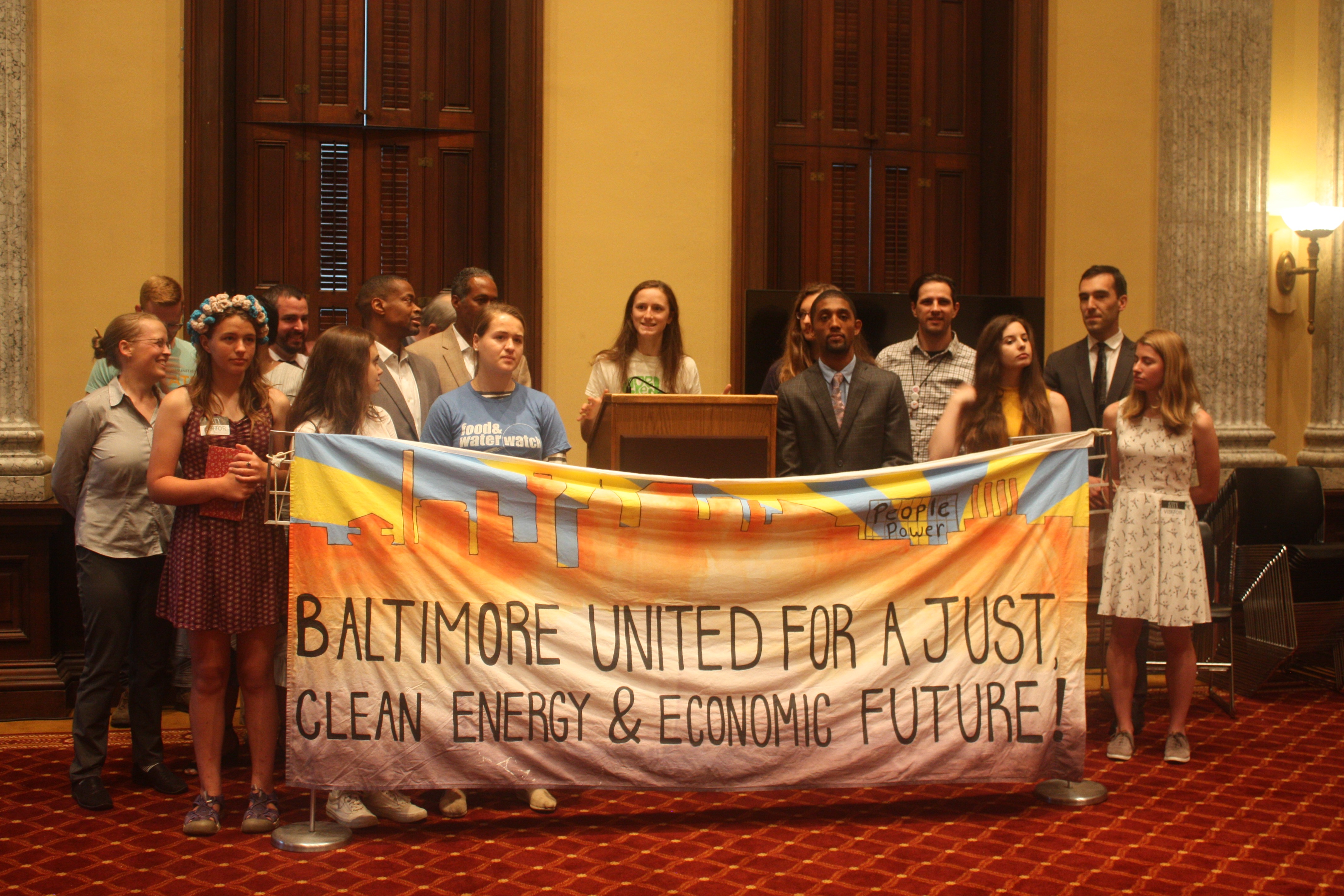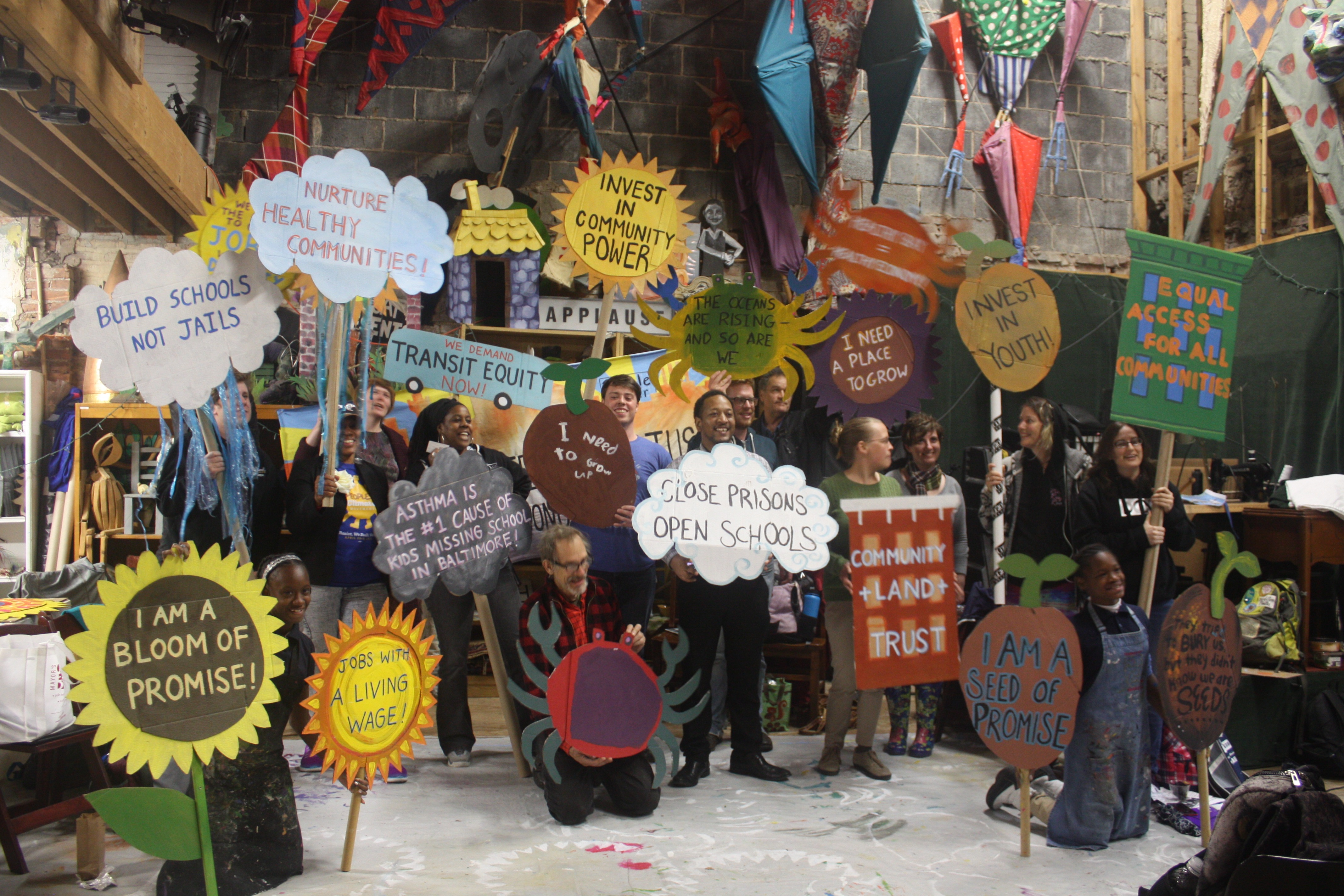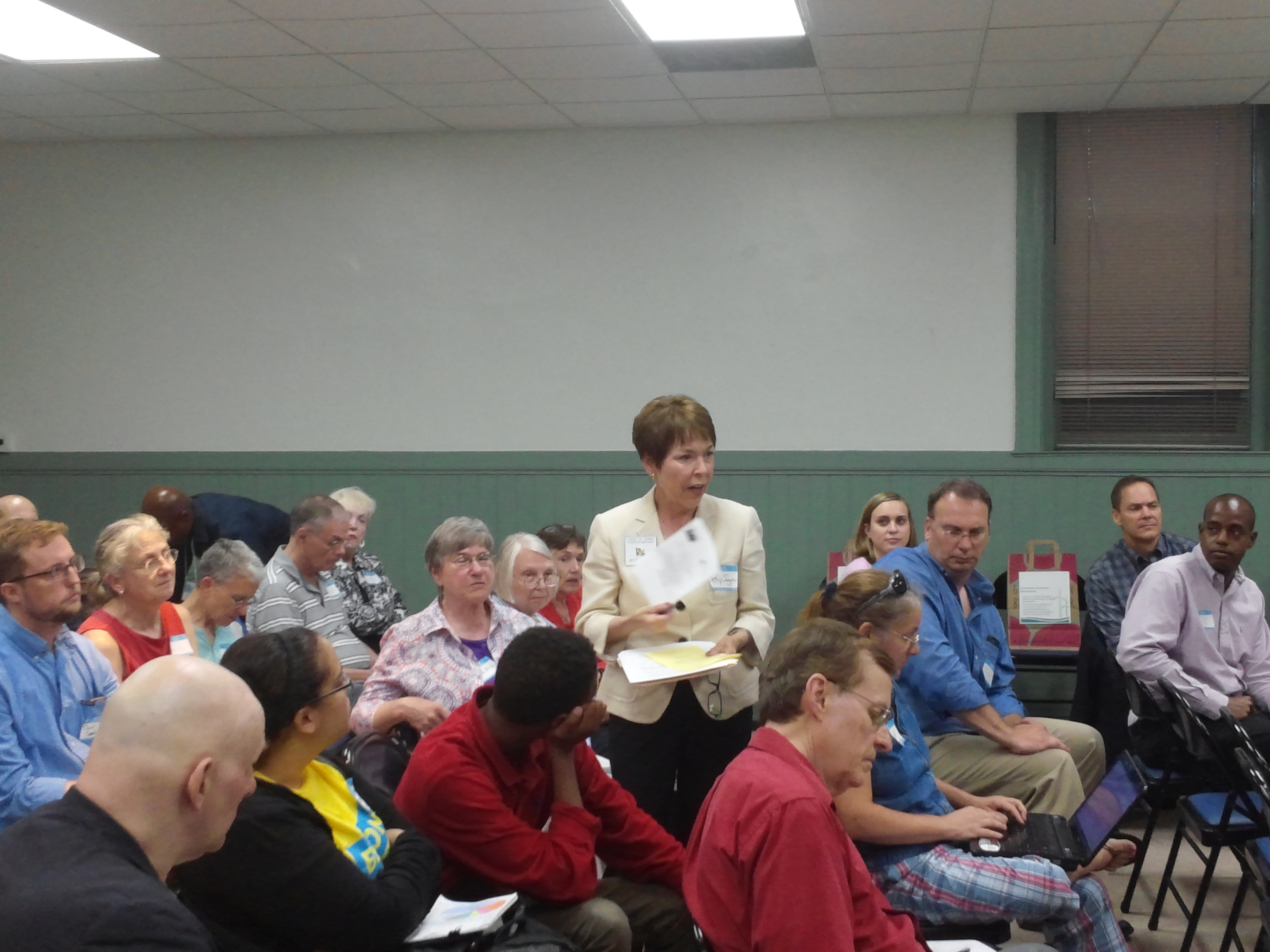The Baltimore City Council adopted a resolution at their June 19th meeting committing Baltimore to uphold the Paris Climate Agreement. A youth-led rally in support of the resolution took place inside City Hall before the vote.
BALTIMORE — On June 19th, Baltimore youth, residents, local elected officials, and environmental advocates rallied inside City Hall in a strong showing of support for city-level climate action. Baltimore City Councilman Zeke Cohen introduced a resolution at the City Council meeting later that evening committing Baltimore to uphold the Paris Climate Agreement.
The rally featured several local leaders, including students with the advocacy group Baltimore Beyond Plastic, Councilman Zeke Cohen, and members of the Baltimore Peoples Climate Movement, who spoke in support of the resolution. The resolution was co-sponsored by fourteen members of the City Council and was adopted immediately during Monday night’s meeting.
Claire Wayner, co-founder of Baltimore Beyond Plastic, said, “plastic pollution has a direct linkage to climate change from its manufacturing out of fossil fuels to its all-too-common disposal through trash incineration, which contributes to greenhouse gas emissions. Our organization is committed to transmitting the youth voice to support positive climate action in Baltimore to indirectly reduce our reliance on plastics, and we hope our city will join the nationwide movement to stand behind the Paris Climate Agreement.”
“We applaud the efforts of the Baltimore City Council to address climate change, the greatest threat to our health and safety,” said Tamara Toles O’Laughlin, Executive Director of the Maryland Environmental Health Network. “Climate change can lead to dangerous health conditions and preventable deaths for the most vulnerable Marylanders. Baltimoreans already experience extended allergy seasons, heat stress, heart disease, asthma and other lung diseases, as well as increases in the spread of vector borne illnesses like Lyme disease and the threat of the Zika virus. We can not afford to ignore short-sighted rollbacks or play partisan politics at the expense of health outcomes.”
Cortez Elliott, a member of the Baltimore Peoples Climate Movement, said, “Glad to see Baltimore City moving ahead in the right direction towards a just, clean energy economy. This resolution is the first stepping stone to ensure the city is setting the standard for inclusiveness, equity, and energy efficiency by addressing the environmental injustices that disproportionately impact low-income people and communities of color in Baltimore. The resolution highlights the importance of making the world a better place for future generations by taking strong action to fight climate change.”
Background Information:
The United States’ withdrawal from the Paris Climate Agreement on June 1 sparked action from concerned citizens outraged by the implications for future Baltimoreans. Baltimore youth, Councilman Cohen, environmental health advocates, and a coalition of groups that make up the Baltimore Peoples Climate Movement, united to reject this reckless decision and abdication of leadership. In the absence of federal action, cities like Baltimore must step up.
Councilman Zeke Cohen, the Maryland Environmental Health Network, and over fifteen partners collaborated on the resolution. The aims of the resolution are to recognize the significance of the 2015 Paris Climate Agreement, oppose the U.S.’s withdrawal from it, and commit Baltimore City to specific practices that will work to prevent the worst impacts of climate change. The resolution pledges to uphold practices that foster “a liveable, economical, equitable, and just energy future for all Baltimoreans regardless of age, race, income, or zip code.” The resolution can be viewed here.
More information can be found on Facebook at Baltimore Beyond Plastic, Baltimore Peoples Climate Movement , and by searching the hashtags #BmoreClimateJust and #WeAreStillIn.
CONTACT:
Allison Rich, Maryland Environmental Health Network: arich@mdehn.org; (786) 897-6689
Rebecca Mark, Maryland Working Families; rmark@workingfamilies.org; (347) 224-1860
Taylor Smith-Hams, CCAN: taylor@chesapeakeclimate.org; (650) 704-3208
—
















